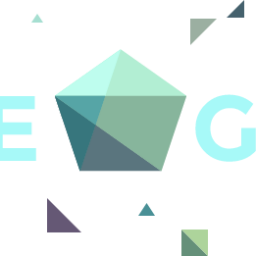Original Post by SOPHIE HUSS
The economist Lant Pritchett believes that soft skills are the reason why women such as Sheryl
Sandberg, the COO of Facebook, have soared to the very top, overtaking her Harvard contemporaries. “She was young, brilliant, good-looking, and you might easily bridle at that, but she is so good at working with people, you couldn’t help but like her,” recalled Pritchett, who was Sandberg’s first boss.
No matter how good their resumes are, when job seekers are turned down for p
 ositions, it probably isn’t because they lack the “hard” expertise to do the job. It’s far more likely that they’ve demonstrated a lack of the soft skills the company ‘s looking for: a professional attitude, an ability to be punctual, a sense of humor… qualities that are just as important in deciding if a job seeker is right for a position as their years of experience.
ositions, it probably isn’t because they lack the “hard” expertise to do the job. It’s far more likely that they’ve demonstrated a lack of the soft skills the company ‘s looking for: a professional attitude, an ability to be punctual, a sense of humor… qualities that are just as important in deciding if a job seeker is right for a position as their years of experience.
Soft vs. Hard: You Need Both
Having strong soft skills makes you a desirable job candidate and gives you an edge over other job seekers. When you focus on your attitude, presentation and demonstration of professionalism, hiring managers will see you as a welcome addition to their team.
John Lees, career coach and author of Secrets of Resilient people, says “Many candidates see hard skills as relevant and soft skills as ‘nice to have’ or ten-a-penny. The paradox, of course, is that some of the most difficult tasks are achieved through well-crafted soft skills such as persuading, influencing and negotiating”.
In today’s business world, where technologies advance almost overnight, many companies offer on-the-job training to employees to develop the hard skills they need. But no company can teach a worker how to be more empathetic, more positive, a better communicator, or a better team player. These soft skills must be developed through life experience. And their value to a prospective employer cannot be underestimated: a study commissioned by McDonald’s UK in 2015 found that 97% of employers believed that soft skills were important to their current business success and over half said skills like communication and teamwork were more important than academic results.
How to Prove You Have the Soft Stuff
Remember that it all begins with your resume. Don’t just call yourself “hardworking” or “passionate”: every candidate does. You undoubtedly have a lot of soft skills; the trick is figuring out how to put them in words. Do this by including your achievements and experiences that express a strong work ethic, commitment, communication skills or teamwork. Examples don’t have to come from your employment history – volunteering or community work can demonstrate these skills too.
When it’s time for your interview (and you’ll get one with all these soft skills in your resume), remember the tools you have in your arsenal and use them: show professionalism by being on time, dressed appropriately. Show you’re a good listener by answering questions intelligently and succinctly. Show integrity by being honest about any holes in your resume, and creativity by asking questions your interviewer hasn’t heard a thousand times. Let your confidence and positivity shine through even if you’re nervous (don’t forget: you’re allowed to be nervous during an interview!) And show you’ve got a sense of humor by remembering to smile once in a while.
Want to Build a More Collaborative Team? Click Here For Some Collaborative Conferencing Solutions!

